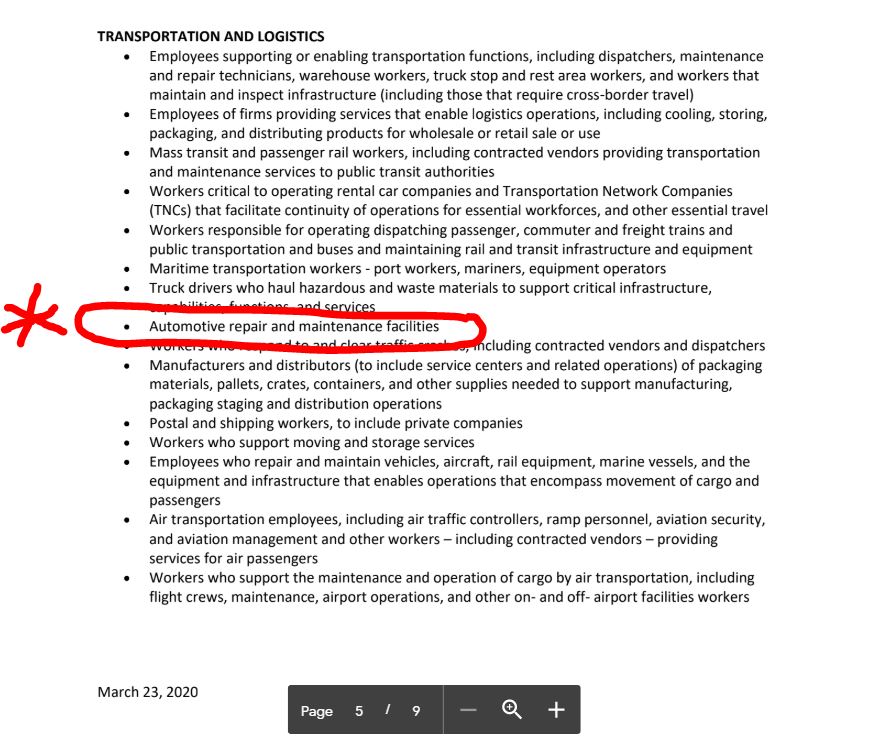Regarding the recently passed stimulus package:
-
The measure would establish a new Paycheck Protection Program to let small businesses, nonprofits, and individuals seek loans through the Small Business Administration’s 7(a) loan program.
-
The measure would authorize $349 billion in total 7(a) lending from Feb. 15 through June 30, instead of the current $30 billion authorization for fiscal 2020.
-
It would also provide $349 billion for the SBA to fully guarantee loans under the new program, compared with a 75% or 85% guarantee for standard 7(a) loans. Loans would be available during the covered period for:
- Any business, nonprofit, veterans group, or tribal business with 500 or fewer employees, or a number set by the SBA for the relevant industry.
-
Sole proprietors, independent contractors, and eligible self-employed workers.
-
Hotel and food service chains with 500 or fewer employees per location.
-
Eligible recipients could receive loans for as much as $10 million or 250% of their average monthly payroll costs, instead of $5 million. Interest rates during the covered period would be capped at 4%.
-
Recipients could use the loans to cover eligible payroll costs — including salaries, commissions, regular paid leave, and health-care benefits — as well as mortgage interest and utility payments. They’d have to make a “good faith certification” that they’ll use the funds to retain workers, maintain payroll, and pay for rent and similar expenses.
-
They couldn’t use the funds to compensate individual employees at an annual rate above $100,000, or to pay for emergency sick or family leave under the second coronavirus response package (Public Law 116-127).
-
The measure would waive rules requiring recipients to pay certain fees, provide collateral, or be unable to obtain credit elsewhere. SBA rules on company affiliates used to determine small business size would be waived for franchises, food or lodging companies with 500 or fewer employees, and businesses that get financial assistance from a small business investment company.
-
Approved 7(a) lenders could issue covered loans if they determine a business was operating with salaried employees or paid contractors as of Feb. 15. The measure would provide $25 million for the Treasury Department to set criteria to allow additional insured banks and credit unions to participate.
-
The SBA would have to assume that eligible loan applicants in operation as of Feb. 15 were adversely affected by Covid-19, and require lenders to let them defer payments for at least six months and as long as one year.
-
Loans would receive a risk weight of 0% under banking capital rules, meaning banks and credit unions wouldn’t have to set aside additional capital to cover them. Lenders that modify covered loans due to Covid-19 would be temporarily exempt from having to make certain disclosures related to troubled debt restructurings.
-
Recipients of SBA-guaranteed loans under the Paycheck Protection Program could apply for loan forgiveness over eight weeks for eligible payroll costs and for mortgage interest, rent, and utility payments.
-
The SBA would pay lenders for any canceled debt plus accrued interest. Lenders generally wouldn’t be subject to enforcement actions under the Small Business Act related to loan forgiveness.
-
Loan forgiveness would be reduced for businesses that fire employees or cut their pay. Businesses could receive additional forgiveness for wages paid to tipped employees.
-
Covered loans would have a maximum maturity of 10 years following a borrower’s application for forgiveness. The SBA would continue to guarantee remaining balances.
-
Canceled debt would be excluded from borrowers’ gross income for tax purposes.
-
The measure also would authorize and provide $17 billion for the SBA to pay the principal, interest, and associated fees for loans under the 7(a), 504, and micro-loan programs for six months.
This program is definitely encouraging – if funds are distributed quickly, it should give many small businesses the ability to reopen their doors and continue operations.
More resources
Here are links to resources that will likely be useful in the days ahead:
- I highly recommend that all business owners get tuned into the Small Business Administration website and follow them closely for updates.
- Businesses can apply for loans here.
- Click here to follow the SBA on Facebook.
- Click here to follow the SBA on Twitter.
- Click here to access the SBA’s local resources in your community.
- Find a local business mentor and additional coronavirus-related resources at SCORE.org


